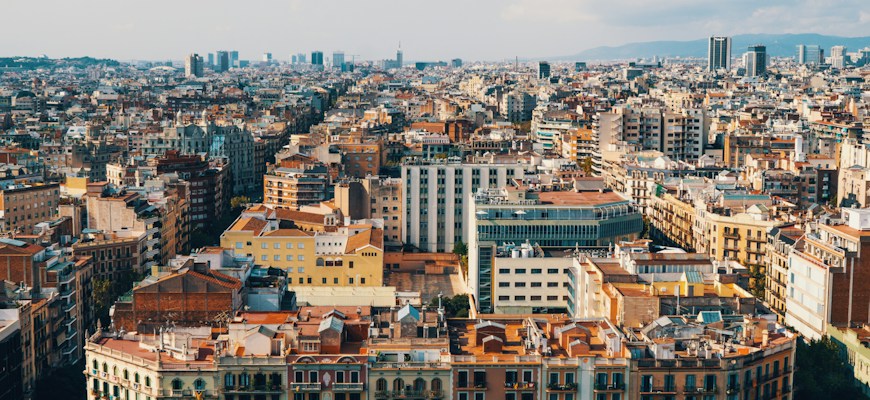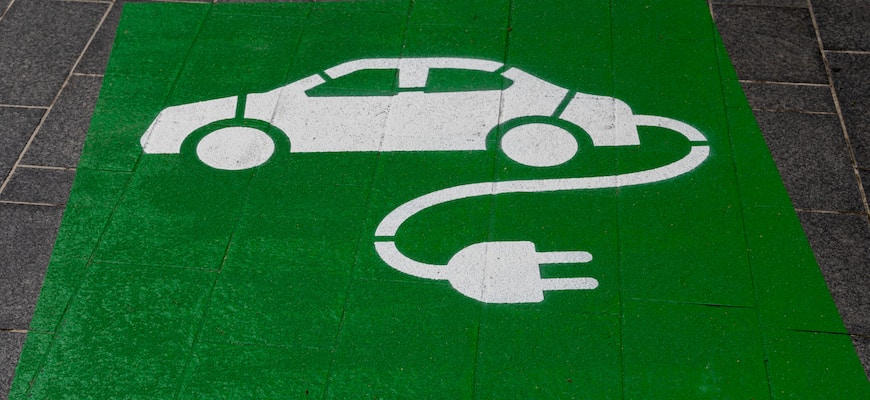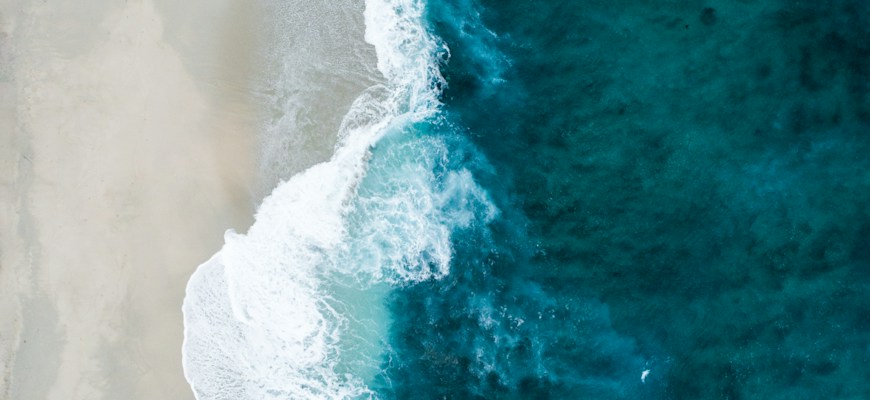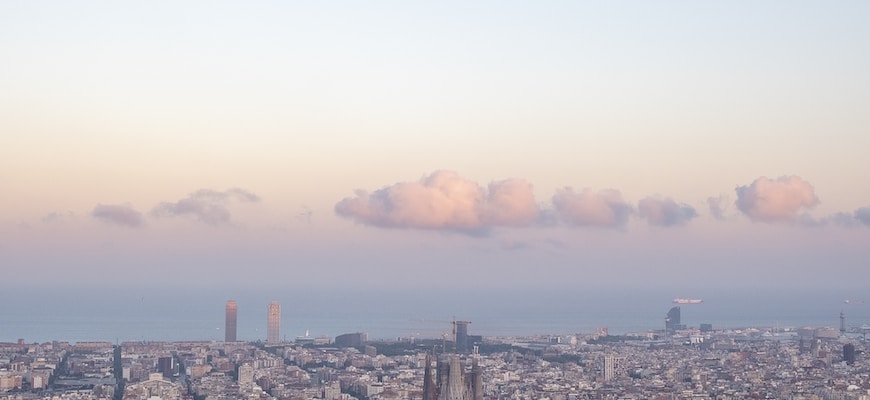Sustainability initiatives for Barcelona’s beaches

Barcelona’s beaches are not only known for their pristine beauty, but also for their commitment to sustainability. The city has implemented various initiatives to preserve and protect these natural gems, ensuring that future generations can continue to enjoy them.
- Beach Clean-up Programs: Barcelona organizes regular beach clean-up programs, where volunteers come together to remove litter and debris from the shores. These initiatives help maintain the cleanliness of the beaches and prevent pollution of the surrounding waters.
- Waste Management: The city has implemented a comprehensive waste management system that includes separate bins for recyclables, organic waste, and general waste. This encourages beachgoers to dispose of their waste responsibly and reduces the amount of waste that ends up in landfills or pollutes the beaches.
- Sustainable Infrastructure: Barcelona’s beach facilities are designed with sustainability in mind. The beach promenades, showers, and toilets are equipped with eco-friendly features such as solar panels and water-saving fixtures. These initiatives help reduce the environmental impact of beach infrastructure and promote energy and water conservation.
- Educational Programs: The city organizes educational programs and workshops to raise awareness about the importance of preserving the beaches. These initiatives aim to educate both locals and tourists about the impact of their actions on the environment and encourage responsible behavior when visiting the beaches.
- Protected Marine Areas: Barcelona has established protected marine areas along its coastline, safeguarding the biodiversity and ecosystems that thrive in these waters. These areas are strictly regulated to prevent overfishing and habitat destruction, ensuring the long-term sustainability of the marine life and the beaches themselves.
By implementing these sustainability initiatives, Barcelona is dedicated to preserving the natural beauty of its beaches and creating a more eco-friendly environment for everyone to enjoy. Whether you’re soaking up the sun or taking a leisurely stroll along the shore, you can rest assured that Barcelona’s beaches are being cared for with the utmost respect for the environment.
Preserving marine life and biodiversity

Preserving marine life and biodiversity is of utmost importance in Barcelona’s efforts to maintain the pristine beauty of its beaches. Through a combination of strict regulations, educational programs, and conservation initiatives, the city has been successful in protecting the diverse ecosystems that thrive in its coastal waters.
Barcelona has implemented a series of measures to ensure the preservation of marine life. One of these measures is the establishment of marine protected areas, where certain activities such as fishing and anchoring are strictly regulated or prohibited altogether. These protected areas serve as sanctuaries for marine species, allowing them to reproduce and thrive undisturbed.
In addition to protected areas, Barcelona has also implemented educational programs to raise awareness about the importance of marine conservation. Through partnerships with schools and local organizations, residents and visitors are educated about the fragility of marine ecosystems and the actions they can take to minimize their impact. These programs emphasize the significance of responsible tourism and highlight the role individuals can play in preserving the marine biodiversity.
Conservation initiatives are another crucial aspect of Barcelona’s commitment to preserving marine life. The city actively participates in research projects aimed at studying and understanding marine ecosystems, enabling scientists to gather valuable data on the health and diversity of the marine life in Barcelona’s waters. This data is then used to formulate effective conservation strategies and implement measures that address specific threats to marine biodiversity.
- Establishment of marine protected areas
- Educational programs to raise awareness
- Participation in research projects
By combining these efforts, Barcelona is able to create a sustainable balance between human activities and the preservation of marine life. The city’s commitment to the conservation of its coastal ecosystems ensures that future generations will continue to enjoy the pristine beauty of Barcelona’s beaches and the rich biodiversity that thrives beneath its waves.
The impact of tourism on Barcelona’s coastal environment

One of the main attractions of Barcelona is its beautiful coastal environment, which includes its pristine beaches. However, the rapid growth of tourism in the city has had a significant impact on this natural resource.
Firstly, the increase in tourist numbers has put a strain on the coastal ecosystem. The high demand for accommodation has led to the construction of numerous hotels and resorts along the coastline. This has resulted in the destruction of natural habitats, such as dunes and wetlands, which are essential for maintaining the biodiversity of the area.
Secondly, the influx of tourists has also led to increased pollution in Barcelona’s coastal waters. The large number of visitors, combined with inadequate waste management systems, has resulted in the pollution of the sea with litter and sewage. This not only affects the marine life but also poses a threat to the health of beachgoers.
Furthermore, the excessive use of water resources by the tourism industry has also had a negative impact on Barcelona’s coastal environment. The high demand for water, particularly during the summer months, has put a strain on local water sources. This has resulted in the depletion of underground aquifers and the drying up of rivers and streams, which are vital for sustaining the coastal ecosystem.
Lastly, the construction of infrastructure to support tourism, such as roads and parking lots, has further contributed to the degradation of Barcelona’s coastal environment. These developments have not only resulted in the loss of natural habitats but have also disrupted the natural flow of sand along the coastline, leading to erosion and the loss of beaches.
In conclusion, while tourism has brought economic benefits to Barcelona, it has also had a detrimental impact on the city’s coastal environment. It is crucial for both the government and tourists to take sustainable measures to preserve the pristine beauty of Barcelona’s beaches and ensure the long-term viability of its coastal ecosystem.
Promoting eco-friendly practices among beachgoers

Preserving the pristine beauty of Barcelona’s beaches is a responsibility that falls upon each and every one of us. By adopting eco-friendly practices, beachgoers can contribute to the conservation and sustainability of these breathtaking coastal areas. Here are some simple yet impactful ways to promote eco-consciousness during your beach adventures:
- Leave no trace: Always remember to pack out what you bring in. Dispose of your trash properly in designated bins or take it with you. This ensures that the beach remains clean and free from pollution.
- Reduce single-use items: Opt for reusable water bottles, food containers, and utensils. By minimizing the use of disposable products, you can significantly reduce waste and prevent plastic pollution in the ocean.
- Respect wildlife and natural habitats: Keep a safe distance from marine animals and nesting areas. Avoid touching or disturbing any creatures you encounter, as this can disrupt their natural behavior and habitat.
- Use reef-safe sunscreen: Choose sunscreens that are labeled as “reef-safe” or “ocean-friendly.” Traditional sunscreens often contain harmful chemicals that can damage coral reefs and marine life. Opting for eco-friendly alternatives helps protect the delicate ecosystems beneath the waves.
- Participate in beach cleanups: Join local initiatives or organize your own beach cleanup events. By actively removing litter and debris from the shoreline, you can make a positive impact on the environment and inspire others to do the same.
Remember, our beaches are not just places of leisure and beauty; they are fragile ecosystems that require our care and respect. By adopting eco-friendly practices, we can ensure that future generations can continue to enjoy the pristine beauty of Barcelona’s beaches.
Collaborations for beach conservation

Collaborations for beach conservation are crucial to preserving the pristine beauty of Barcelona’s beaches. Various organizations and initiatives have come together to work towards the common goal of protecting and maintaining the ecological balance of these coastal areas.
One such collaboration is the Barcelona Beach Conservation Initiative (BBCI), which brings together government agencies, environmental organizations, and local communities. Through this partnership, they implement sustainable practices and raise awareness about the importance of beach conservation.
Another important collaboration is the Beach Cleanup Program, organized by the Barcelona Environmental Society. This program engages volunteers from all walks of life to participate in regular beach cleanups. By removing litter and waste, these efforts contribute to keeping the beaches clean and safe for both visitors and wildlife.
- The Marine Wildlife Conservation Society (MWCS) is actively involved in protecting the marine life around Barcelona’s beaches. They conduct research, monitor the health of the ecosystem, and advocate for the implementation of conservation policies.
- The Barcelona Surfing Association (BSA) works towards sustainable surfing practices. They promote responsible surfing behavior, educate surfers about the importance of protecting the marine environment, and collaborate with local authorities to establish designated surfing areas.
- The Coastal Plantation Project, led by the Barcelona Botanical Society, focuses on preserving the native plant species along the coast. Through the cultivation and restoration of these plants, they help maintain the natural biodiversity of the beach ecosystems.
These collaborations demonstrate the collective efforts being made to ensure the long-term preservation of Barcelona’s beaches. By combining resources, knowledge, and passion, these organizations are making a significant impact on beach conservation and setting an example for other coastal regions to follow.
Protecting Barcelona’s beaches from pollution

Barcelona’s beaches are not just a popular tourist destination, but also a vital part of the city’s ecosystem. It is crucial to protect these pristine beaches from pollution to maintain their beauty and preserve the marine life that calls them home.
There are several initiatives in place to ensure the cleanliness and sustainability of Barcelona’s beaches:
- Regular beach clean-ups: Dedicated teams work tirelessly to remove any litter and debris from the beaches. These clean-ups help maintain the aesthetic appeal of the beaches and prevent pollution from affecting the marine ecosystem.
- Waste management systems: Barcelona has implemented efficient waste management systems along the coastline. These systems include strategically placed recycling bins and garbage disposal units, making it convenient for beachgoers to dispose of their waste responsibly.
- Water quality monitoring: The water quality of Barcelona’s beaches is regularly monitored to identify any potential pollution sources. This monitoring ensures early detection and quick action to rectify any issues, safeguarding the health of both beach visitors and marine life.
- Environmental education programs: To promote awareness and encourage responsible behavior, educational programs are conducted to inform locals and tourists about the importance of preserving the beaches. These programs emphasize the need to reduce single-use plastics, properly dispose of waste, and respect the natural environment.
By implementing these measures, Barcelona is taking proactive steps to protect its beaches from pollution and maintain their pristine beauty for generations to come. It is a collective effort that requires cooperation from beachgoers, local authorities, and environmental organizations to ensure the long-term sustainability of Barcelona’s coastal treasures.
Balancing development and environmental preservation

When it comes to preserving the pristine beauty of Barcelona’s beaches, striking a balance between development and environmental preservation is crucial. The city understands the importance of protecting its natural resources while also catering to the needs and demands of its residents and tourists.
One way Barcelona achieves this delicate balance is through responsible urban planning. The city carefully evaluates development proposals to ensure they align with sustainable practices and minimize their impact on the environment. By implementing strict regulations and guidelines, Barcelona ensures that any new construction or infrastructure projects are carried out in an environmentally-friendly manner.
In addition to responsible urban planning, Barcelona actively promotes and supports initiatives that prioritize environmental preservation. The city has invested in the restoration and protection of its coastline, ensuring that its beaches remain clean, free from pollution, and accessible to everyone. Barcelona also encourages the use of renewable energy sources, such as solar and wind power, to reduce its carbon footprint and contribute to a greener future.
Furthermore, Barcelona recognizes the value of educating both locals and visitors about the importance of preserving the natural beauty of its beaches. Through awareness campaigns, educational programs, and community outreach, the city aims to instill a sense of environmental responsibility in its residents and visitors alike. By fostering a culture of sustainability, Barcelona hopes to create a lasting impact and ensure the continued preservation of its breathtaking beaches.
By striking a harmonious balance between development and environmental preservation, Barcelona sets an example for other coastal cities around the world. Through responsible urban planning, support for environmental initiatives, and educational efforts, the city not only preserves the pristine beauty of its beaches but also paves the way for a sustainable future.


Leave a Reply